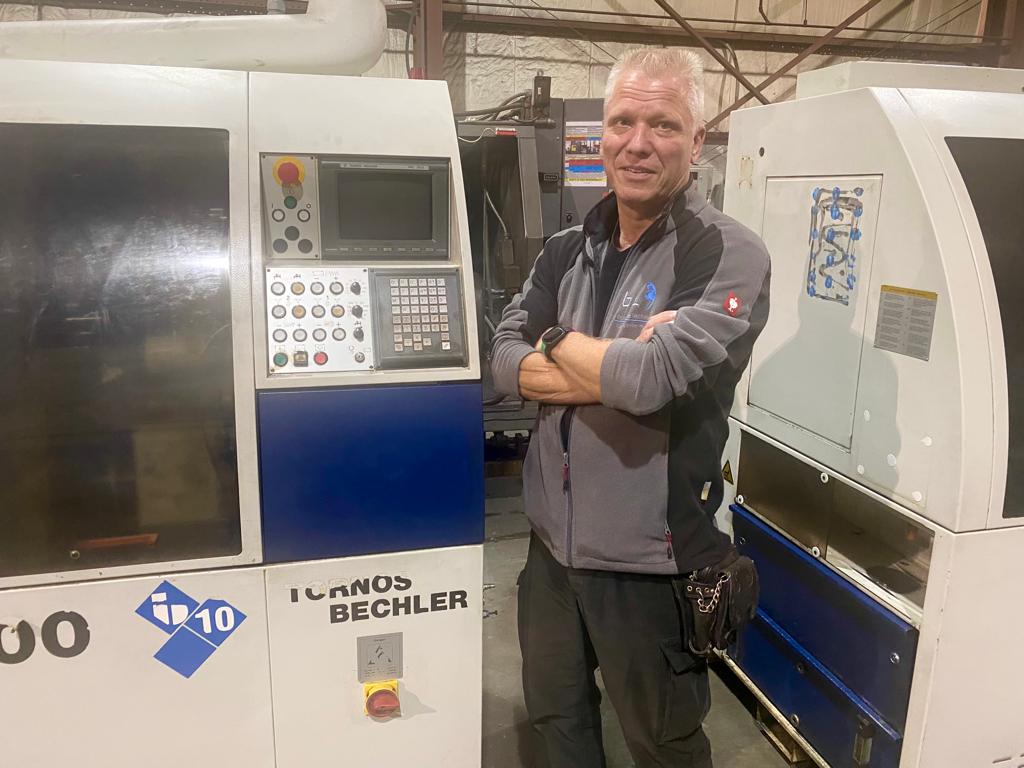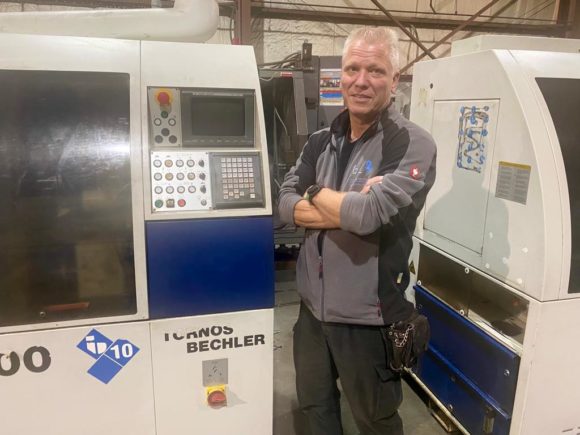On today’s podcast I spoke to Achim Bauer, one of the most knowledgeable people I know about Tornos DECO CNC Swiss machines. His company, Bauer & Licht Industrietechnik OHG, in Pforzheim, Germany, is one of the only companies in the world that specializes specifically in rebuilding Tornos DECOs. Recently, I had the privilege to pick his brain about the nuances of the powerful sliding headstock machine that’s no longer manufactured yet still has a vast group of loyal users worldwide.
Main Points
Achim worked at Tornos in Germany from ‘90s until 2011 when he and his partner started their own company, Bauer and Licht. Sometimes Bauer & Licht buys used Tornos DECO machines to rebuild and resell, but Achim says his preferred business model is rebuilding Tornos DECO machines that customers already own. The company offers different options of service to repair or overhaul the machines depending on customers’ needs and budgets. They are capable of taking a machine down to its barebones and creating virtually a new machine, able to produce parts of an extremely high standard. Bauer and Licht’s basic overhaul consists of replacing a machine’s ball screws, slides, coolant pump, cables, and fans. Sometimes the company makes software upgrades and installs accessories such as high frequency spindles or high pressure pumps.
 There are four models of Tornos DECOs. DECO10 machines can have as many as 9 axes, and the other three models can feature up to 10 axes. The DECO10 has a maximum 10mm capacity, the DECO13 has a maximum 16mm capacity, the DECO20 has a 20mm capacity but can be expanded to 25.4mm, and the DECO26 has a maximum capacity of 32mm. Tornos DECOs have Fanuc controls, but the controls are entirely different than those on a different brand of Swiss machine such as a Star or Tsugami. On a Tornos DECO the operator cannot input a program directly on the machine’s control. Instead, the operator writes a program using software on a PC, which is then transferred into the machine tool’s control using a usb drive or a good old fashioned floppy disc.
There are four models of Tornos DECOs. DECO10 machines can have as many as 9 axes, and the other three models can feature up to 10 axes. The DECO10 has a maximum 10mm capacity, the DECO13 has a maximum 16mm capacity, the DECO20 has a 20mm capacity but can be expanded to 25.4mm, and the DECO26 has a maximum capacity of 32mm. Tornos DECOs have Fanuc controls, but the controls are entirely different than those on a different brand of Swiss machine such as a Star or Tsugami. On a Tornos DECO the operator cannot input a program directly on the machine’s control. Instead, the operator writes a program using software on a PC, which is then transferred into the machine tool’s control using a usb drive or a good old fashioned floppy disc.
Tornos started making DECOs in the mid-1990s and stopped producing them in the latter 2000s, replacing them with the EvoDECO. Achim says the EvoDECO is also a good machine and has some nice new features such as quieter spindles, a Fanuc 31i control, and some standard modern safety features. Still, a great deal of Tornos DECO users do not want upgrade to the EvoDECOs because they can cost upwards of $300,000. Also, DECO devotees, some of whom have been using the machines for 25 years, already have the tooling, expertise, and confidence that their current equipment will make parts to the standards they require. For this reason, Achim’s company has a great niche.
Achim says despite leaving Tornos to start Bauer and Licht, his company still has a good relationship with Tornos. Tornos supplies them with spare parts, and in the past Bauer and Licht has even helped Tornos with a little bit of service for DECO customers.
Achim has serviced and bought used Tornos DECOs around Europe, in the U.S., and in Asia. He says one of main problems he sees with the machines he encounters is that people do not keep them clean and fail to do maintenance. Usually the biggest offenders are automotive companies who claim they do not have time to stop the machines to clean and maintain them. He says the companies producing watch parts in Switzerland and medical parts in eastern Germany generally have machines in the best condition. Bauer and Licht has the most customers in Bavaria and in the southern areas of Germany.
Achim says that business is currently going well for Bauer and Licht. They are working on as many machines as they can handle. He says in Europe the medical sector and the small connector business are doing well, while the automotive sector is struggling because of supply chain issues with electronic parts.
Question: Which other machine tools do you prefer the older versions of compared to the current ones?
Podcast: Play in new window | Download




